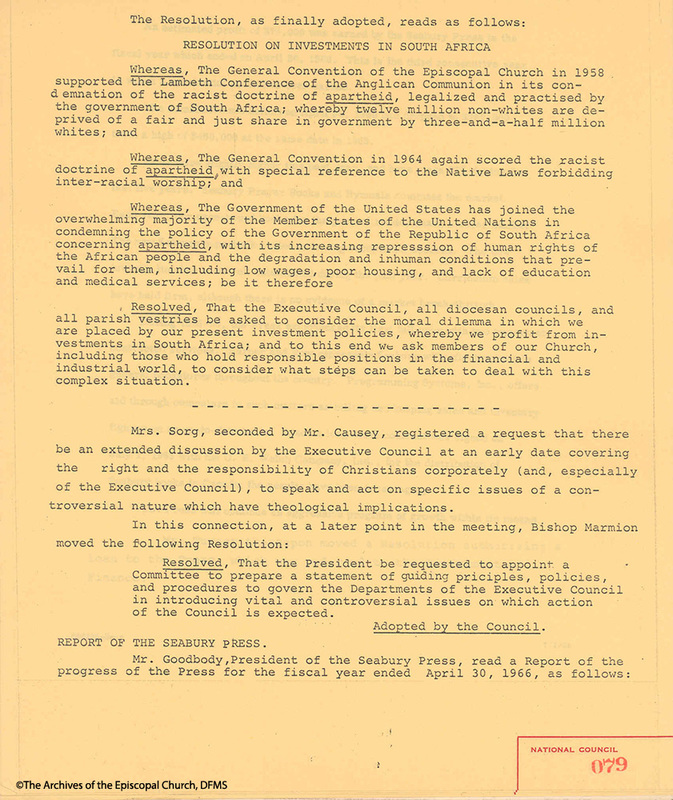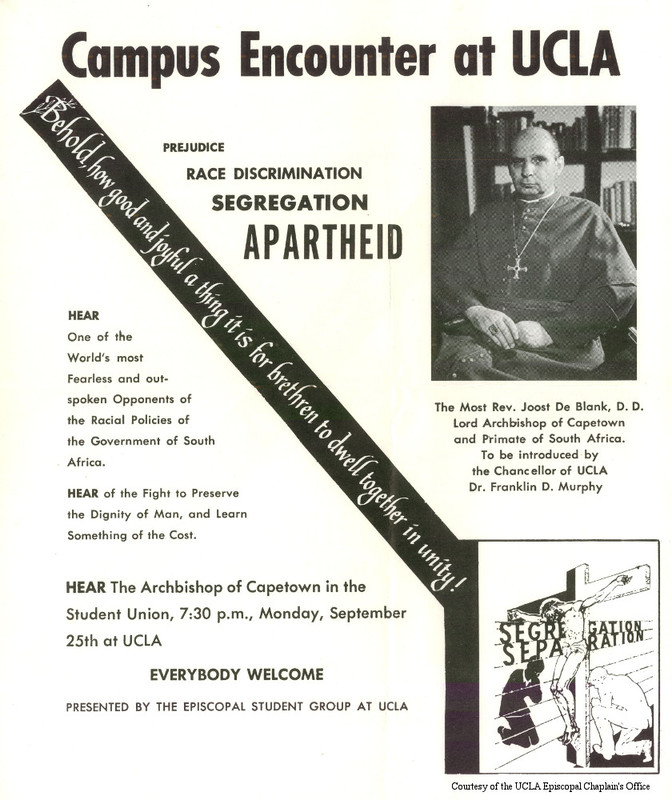The Church, South Africa and Apartheid
Resolution
In June of 1966, the Executive Council of the Episcopal Church adopted a resolution calling on all Church institutions to reconsider their investment policies relating to South Africa. The Church was prompted to re-examine its investment policies by an organization called the Episcopal Churchmen for South Africa (later renamed the Episcopal Churchpeople for a Free Southern Africa). Created by layman William Overton Johnston in 1956 as a ministry to liberate South Africa from apartheid, it challenged the complicity of the Church towards white-dominated South Africa.
Executive Council began passing resolutions in 1968 narrowing the criteria for investments in companies and banks doing business in the region, but it was not until 1971 that the Church broadened the debate to consider the ethical implications of specific corporate investments in a country whose politics and structure were governed based on color. In this instance, controversial actions of the Episcopal Church contributed substantially to a positive change in human rights and influenced denominations and institutions nation-wide to reexamine their investment policies. [Sources]



